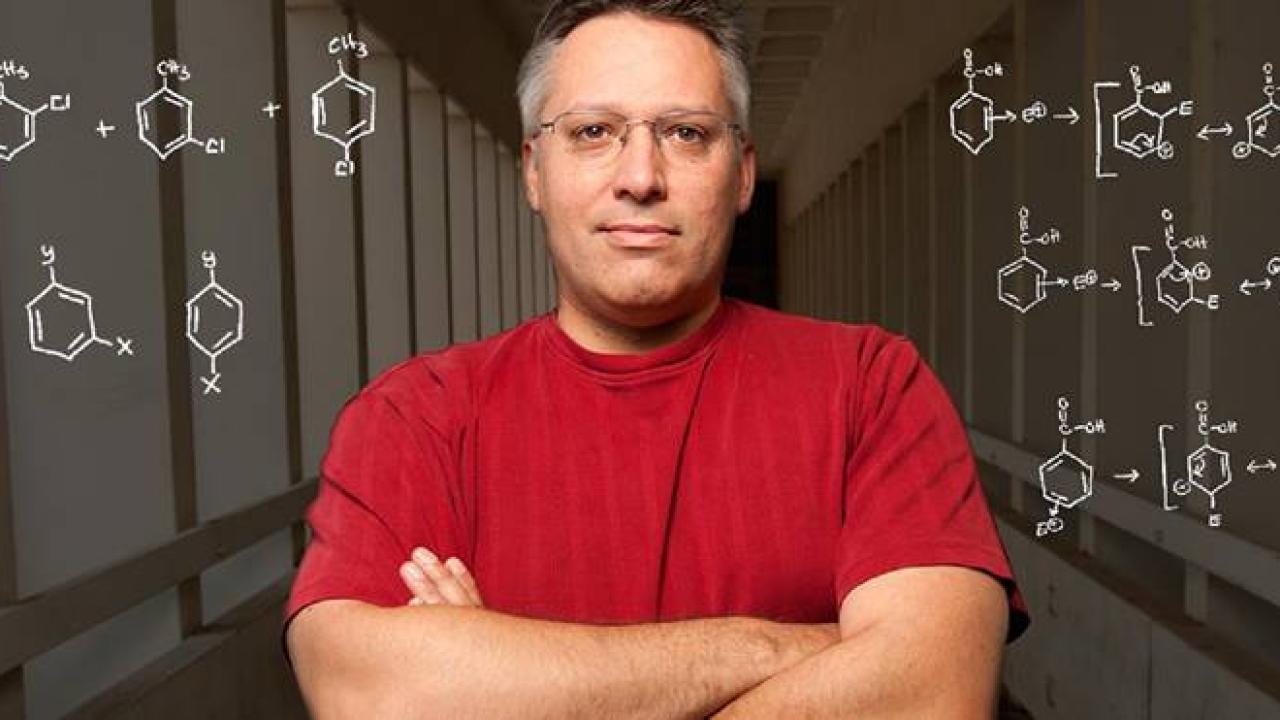
Free Textbook Effort Expands With $600,000 Grant
College students in the STEM fields could see sizable savings thanks to a $600,000 grant awarded to an open source textbook project developed at the University of California, Davis.
The ChemWiki project recently received $600,000 from the National Science Foundation to support further expansion of its open source textbooks into fields including statistics, math, geology, physics, biology and solar energy.
Digital course materials are steadily climbing in use in response to textbook cost concerns, according to an annual survey released in July by the National Association of College Stores. In August, the University of Maryland announced plans to completely eliminate print textbooks this academic year.
The ChemWiki is one of seven wikis that provide free, peer-reviewed textbooks and course materials, such as homework sets, online under an open license. Students can download the texts for free and professors can customize the materials for their courses, such as by rearranging the sequence of information. The seven wikis focus on STEM (science, technology, engineering and mathematics) topics such as biology, math, geology and physics.
"We're trying to make a central database to completely supplant STEM textbooks," said ChemWiki founder Delmar Larsen, a UC Davis chemistry professor. "This grant will give us three times the resources than we have had before. Our goal is to expand our reach to 300 million students annually, and a half-billion page views," Larsen said.
Half of the grant will fund the ChemWiki and half will fund expanding the textbook network, Larsen said. The ChemWiki grant also supports faculty at Sonoma State University, Diablo Valley College, Contra Costa Community College, Hope College in Holland, Michigan, University of Arkansas at Little Rock, Howard University and College of Saint Benedict & Saint John's University.
Battle of the books
Since March 2014, ChemWiki textbooks have been used in more than 30 different classes at campuses in the United States, Canada and the United Arab Emirates. These courses have saved students more than $1 million, Larsen said.
Some critics of open source textbooks complain that the texts can be rife with errors and therefore lower educational quality for students. However, Larsen said, ChemWiki course materials are peer-reviewed, like traditional print textbooks. "I get about four to five correction requests a week and once fixed they are never a problem, in contrast to traditional textbooks," Larsen said.
Larsen and his colleagues also pitted the ChemWiki against traditional print textbooks in a recent study funded by a 2013 NSF grant. The study results were published Sep. 17, 2015, in the journal Chemistry Education and Research Practice.
In spring quarter 2014, Larsen taught half of a UC Davis general chemistry class, more than 475 students, using a standard print textbook. A similar number of students heard the same lectures from Larsen and his teaching assistants and studied the same material using the ChemWiki.
The results showed the learning gains for both classes were not statistically different when accounting for student demographics. There was no statistical difference in either class's performance, Larsen said. Furthermore, high ChemWiki-using students (more than 400 total page views) showed about an eight percent increase in course performance. The results were evaluated by researchers from the Center for Education and Evaluation Services at the UC Davis School of Education.
Millions of visitors
The online textbooks are called wikis because faculty and student volunteers write them. About 5,000 students and 100 faculty have edited the ChemWiki or donated content since 2008. A small group of volunteers is currently translating the organic chemistry textbooks into Spanish and French.
"We need a lot of help to move the project forward," Larsen said.
The ChemWiki website now has 8 million page views monthly, primarily from students. ChemWiki is the most visited chemistry website in the world and most visited UC Davis website, Larsen said. Currently, about 30 percent of Internet visitors to ucd.edu head to the ChemWiki.
Larsen said he launched the ChemWiki in 2008 because he was concerned about the high cost of textbooks. "I thought $200 was atrocious for a physical chemistry textbook," Larsen said. "My response was, 'I can do better, I should do better.'" Today, a single textbook for health or science majors can cost more than $350, Larsen said.
Saving money
Open source textbooks are one of several digital options available to college instructors who are concerned about student costs.
UC Davis is also a leader in providing low-cost digital textbooks to students. Through icontent licensing program, students (and faculty, who ultimately choose the textbooks) can use digital textbooks provided through UC Davis Stores. The lower digital prices saved students more than $1 million in the program's first year.
UC Davis was also the first university to offer textbook price comparisons online and the first university to partner with Amazon. UC Davis provides the largest textbook rental program per capita in the United States.
UC Davis will host the National Association of College Stores' 2016 Textbook Affordability Conference in April 2016.
— Becky Oskin, content strategist in the UC Davis College of Letters and Science
